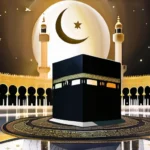Explore the importance, history, and practices surrounding Friday prayers in Islam.
Friday prayers, or Jumu’ah, are a significant part of Islamic worship. This article delves into the significance of these prayers, their history, and the practices associated with them.
The Historical Significance of Friday Prayers
The historical significance of Friday prayers in Islam is deeply rooted in the life and teachings of Prophet Muhammad (PBUH). Imagine, if you will, a community coming together under the sun for prayer—these gatherings symbolized more than just religious devotion; they were a testament to unity and solidarity. When was the first Friday prayer held? It is said that the very first congregation took place in the Masjid al-Nabawi (Prophet’s Mosque) in Medina, where Prophet Muhammad led his followers in prayer on Fridays.
These early gatherings were not merely a religious obligation; they served as a social and political platform. Was it by chance that these prayers were held on Fridays? Hardly. Friday was chosen because it was traditionally a day of rest, allowing people to gather without the burden of work or other commitments. This practice has since become an integral part of Islamic culture, marking Fridays as special days for communal worship and reflection.
The historical evolution of Friday prayers is fascinating. Over time, mosques were built specifically to accommodate these gatherings, becoming centers not just of religious activity but also of community life. These mosques often housed schools, libraries, and places where social issues could be addressed. Can you imagine the transformation that occurred as these mosques became hubs for both spiritual and societal needs?
The traditions associated with Friday prayers have also remained largely consistent throughout history. The khutbah (sermon) given by the imam after the prayer is a significant part of the service, offering guidance on moral and social issues relevant to the community. This practice ensures that religious teachings are not only memorized but also applied in everyday life.
In essence, Friday prayers have played a crucial role in shaping Muslim communities over centuries. From their humble beginnings in Medina to the grand mosques of today, these gatherings continue to bind Muslims together under the guidance of Allah and Prophet Muhammad (PBUH). The historical significance of Friday prayers lies not just in their religious importance but also in their ability to foster unity and social cohesion among believers.
The Importance of Friday Prayers in Islamic Law
Friday prayers hold a unique significance in Islamic law, often referred to as Jumu’ah. Have you ever pondered why this prayer is considered one of the five pillars of Islam? To understand its importance, we must delve into its role within the legal framework of Islam.
In the Quran, the significance of Friday prayers is clearly emphasized. Surah Al-Jumu’ah (The Congregational Prayer) specifically mentions these prayers as a means to strengthen ties among believers and promote unity in the community. Imagine the Jumu’ah prayer as a bridge connecting every individual to their faith and to one another.
Islamic law, or Shariah, places great emphasis on the Jumu’ah. According to legal scholars, performing Friday prayers is obligatory for every able-bodied Muslim who has reached puberty. This makes it a duty as crucial as giving alms (Zakat) and fasting during Ramadan. It’s almost like Friday prayers are the heart of communal worship, pumping life into the spiritual fabric of society.
Furthermore, Jumu’ah is not just a prayer; it’s a gathering that brings people together under one roof. The congregation serves as a microcosm of the broader Muslim community, where individuals from all walks of life come together to offer their prayers and listen to the sermon (khutbah). This shared experience fosters a sense of belonging and strengthens communal bonds.
By participating in Jumu’ah, Muslims are not just fulfilling a religious obligation but also contributing to the well-being of their community. It’s like a daily dose of social medicine, reminding us of our responsibilities towards each other and our faith. This practice ensures that every Friday, we come together as one body, united in our belief and commitment.
The Practices Associated with Friday Prayers
The practices associated with Friday prayers are rich with significance and purpose, weaving together elements that make this communal worship deeply meaningful for Muslims worldwide. Imagine stepping into a mosque during Friday prayers; it’s like entering a portal to a different realm where temporal concerns fade away, replaced by spiritual unity and reflection.
One of the most striking features is the khutbah, or sermon, which is given after the Salat al-Jum‘ah. This sermon serves as a bridge between individual prayers and community life. It’s a time when the imam addresses the congregation with messages that are both personal and communal, guiding them on how to live their lives in accordance with Islam’s teachings. Think of it like a compass, pointing you towards ethical and moral paths that strengthen your faith.
The congregational aspect is another highlight. Muslims from all walks of life gather together, breaking down barriers of class, race, and gender. This shared experience fosters a sense of brotherhood and sisterhood that transcends personal differences. It’s like a mosaic where each piece brings its unique color to the picture, creating a beautiful whole.
During this communal gathering, there is also a silent prayer known as Rakat al-Tahiyyat, which serves as an opportunity for individuals to offer their own prayers before the sermon. This moment allows personal reflection and devotion, making each person’s experience unique yet interconnected with the community.
Friday prayers are not just about following a set of rituals; they are a dynamic space where spiritual growth, communal support, and personal introspection intertwine. They embody the essence of Islam—unity in diversity, and the journey towards becoming better individuals and members of society.
The Rituals and Etiquettes of Friday Prayers
Imagine walking into a mosque on Friday, just before Friday prayers. The air is thick with anticipation and reverence, as worshippers prepare to come together in unity. One of the first rituals you’ll notice is the wudu, or ablution—this ritual cleansing prepares both body and soul for prayer. Just like a gardener prunes dead leaves from a plant to promote new growth, wudu removes impurities to allow spiritual renewal.
Attending Friday prayers isn’t just about praying; it’s an experience that intertwines physical preparation with mental and emotional readiness. The nicab, or head covering, worn by many women, is not just a piece of fabric but a symbol of modesty and respect. Men often wear their finest clothes, much like preparing for a special occasion, to show reverence for the community gathering.
The ritual of prayer itself follows a structured pattern: standing, bowing, prostrating, and sitting. Each posture carries its own significance, almost like a choreographed dance that connects worshippers with the divine. The qibla, or direction towards Mecca, guides the entire congregation, uniting them in their spiritual journey.
The act of recitation is also central to these prayers. Verses from the Quran are read aloud, each word carefully pronounced to ensure the meaning and spirit are preserved. It’s like a symphony, where every voice contributes to a harmonious whole, enhancing the collective worship experience.
The Impact of Friday Prayers on Muslim Communities
The impact of Friday prayers on Muslim communities is profound and multifaceted, much like the roots of a mighty tree that anchor it to the earth. How many times have you wondered, ‘How do these gatherings bring us closer together?’ The answer lies in the very essence of Friday Prayers. These communal prayers are not just a ritual but a vibrant pulse that beats within every Muslim community, fostering a sense of unity and spiritual growth.
Imagine walking into a masjid on Friday, where the air is thick with anticipation. The sound of the adhan (call to prayer) echoes through the streets, drawing people from all walks of life – young and old, rich and poor. It’s as if a silent invitation has been extended, uniting them under one roof. How can such an experience fail to evoke feelings of camaraderie and shared purpose?
During these prayers, Muslims stand shoulder to shoulder in rows, their hearts beating as one. This physical unity mirrors the spiritual oneness they strive for, creating a palpable sense of ujamaa, or community, that transcends personal boundaries. It’s like a giant puzzle where each piece fits perfectly into the whole, highlighting the interconnectedness of faith and human existence.
The khutbah (sermon) delivered during Friday prayers serves as a reminder of our common values and responsibilities. It often touches on themes of justice, compassion, and unity in diversity. These messages resonate deeply, inspiring individuals to reflect on their actions and seek ways to contribute positively to society. How can we ignore the profound impact these teachings have on shaping our behaviors and interactions?
In essence, Friday prayers are more than just religious obligations; they are catalysts for social cohesion and personal transformation. They remind us that as diverse as we may be in many aspects of life, we share a common bond through Islam. By participating in these gatherings, Muslims reaffirm their commitment to faith and strive towards a better, more inclusive world.
So, the next time you attend a Friday prayer, pause for a moment. Reflect on how this simple act of coming together can have such a profound impact. It’s not just about praying; it’s about being part of something greater than oneself – a tapestry woven with threads of faith and love.
Understanding the Global Significance of Friday Prayers
The significance of Friday prayers in Islam extends far beyond the religious sphere; it intertwines deeply with the social fabric and cultural tapestry of Muslim communities worldwide. How can one fully grasp the profound impact of these prayers on individuals and societies without delving into their historical roots and daily practices?
Imagine a bustling city square, where every Friday afternoon, people from diverse backgrounds converge to offer Jumu’ah (Friday) prayer. This scene is not just a religious ceremony but a vibrant expression of communal identity and unity. Is it any wonder that Muslims worldwide look forward to this weekly ritual with such enthusiasm? It serves as more than a spiritual gathering; it’s a platform for mutual support, dialogue, and the promotion of Islamic values.
Moreover, Friday prayers play a crucial role in fostering cultural cohesion among Muslims living in different parts of the world. The shared experience transcends geographical boundaries, creating a sense of belonging that cuts across nationalities and languages. Could it be possible to envision a global community where such gatherings serve as bridges between cultures, promoting mutual understanding and respect?
The practice of Friday prayers is not merely about standing in rows behind a Khateeb (preacher). It’s a dynamic process that involves active participation from worshippers. The sermons delivered during the prayer sessions often address contemporary issues, offering guidance and inspiration to the congregation. How can such moments fail to leave an indelible mark on the minds of those who listen?
In essence, the global significance of Friday prayers lies in their ability to connect Muslims across different continents and communities under a common spiritual roof. They serve as a powerful reminder that despite our differences, we are united by shared beliefs and values. Could there be any more meaningful way for Muslims to reaffirm their commitment to Islam and strengthen bonds within their community?
Conclusion
 By understanding the importance of Friday prayers in Islam, we gain a deeper appreciation for this ancient tradition and its role in the lives of Muslims worldwide.
By understanding the importance of Friday prayers in Islam, we gain a deeper appreciation for this ancient tradition and its role in the lives of Muslims worldwide.











